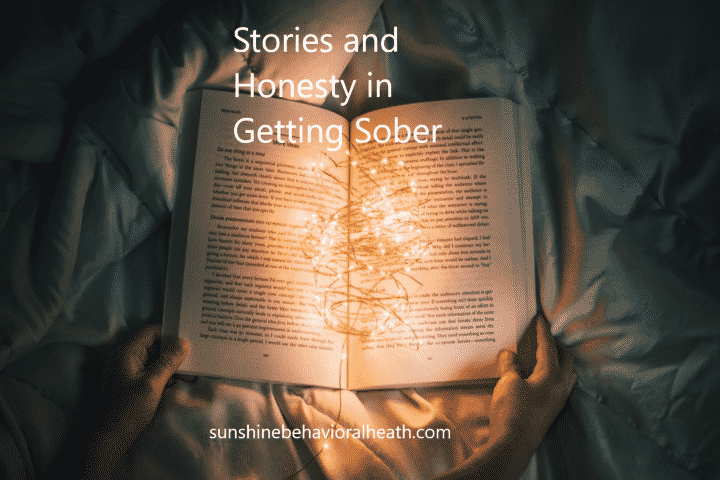
Stories and Honesty in Getting Sober
November is a month we honor veterans and gather to give thanks. It’s also Family Stories Month, billed as a way to get together and share some family history.
Some stories might be nail-biting tales of the war, heart-warming tales of how grandma and grandpa met, or humorous stories about how Aunt Judy botched a dye job and turned her hair pumpkin orange.
There are also the stories those in recovery share. Depending on one’s perspective, they can dance between being amusing or alarming.
Maybe there was the time someone fell off the porch and bystanders got a flash of underwear. Sure it’s funny, but why did it happen? If it was because the tipsy tumbler had polished off a bottle of wine, moved on to shots, and then ended up totally horizontal, that’s more sad than silly.
That’s one issue with those types of stories. Are we basking in the glory days of substance use, or is there a deeper lesson to be learned? What are we laughing at, and is it even funny?
Peer support group meetings and therapy sessions are riddled with stories, both accomplishments of being sober or of resisting temptation, but before getting to those celebratory stages there are often many sadder stories, of feeling ashamed for promiscuity, or for a night in jail, for a fight, for a breakdown, or for mornings after where one feels like pure hell.
Hindsight is 20/20, they say. For people in recovery (or approaching it), it’s also a chance to examine those stories, to catalog that history:
- When did someone drain the last of the schnapps?
- Why did they smoke that … whatever it was?
- Did they throw up on a friend’s carpet?
- Why did they feel so awful, so drained, so sad the next day?
If it’s all in good fun, and it’s not become a habit, that’s one thing, but if it’s a form of willful blindness or a means to an unhealthy escape, those stories don’t sound quite so celebratory any longer.
Dave, host of the Dopey podcast, said “getting honest is the biggest hurdle in getting sober.” That might be a key factor, that level of cold, stark truth, at what’s really driving one’s substance use.
According to the U.S. surgeon general’s Facing Addiction in America report, being honest with oneself was viewed as a key component of recovery, as were coping with negative feelings and finding joy in life without drug or alcohol use.
Part of that is the effort to take personal inventory as part of one’s recovery journey and hopefully crafting a happy ending, one free of hangovers and hopelessness.
Sources
nationaldaycalendar.com – Family Stories Month – November
bbc.com – Dopey: “We Needed Somewhere to Tell Wild Drug Stories”
surgeongeneral.gov – Facing Addiction in America: The Surgeon General’s Report on Alcohol, Drugs, and Health
sunshinebehavioralhealth.com – National Recovery Month: Making an Inventory
A Message From Our CEO
Medical disclaimer:
Sunshine Behavioral Health strives to help people who are facing substance abuse, addiction, mental health disorders, or a combination of these conditions. It does this by providing compassionate care and evidence-based content that addresses health, treatment, and recovery.
Licensed medical professionals review material we publish on our site. The material is not a substitute for qualified medical diagnoses, treatment, or advice. It should not be used to replace the suggestions of your personal physician or other health care professionals.





